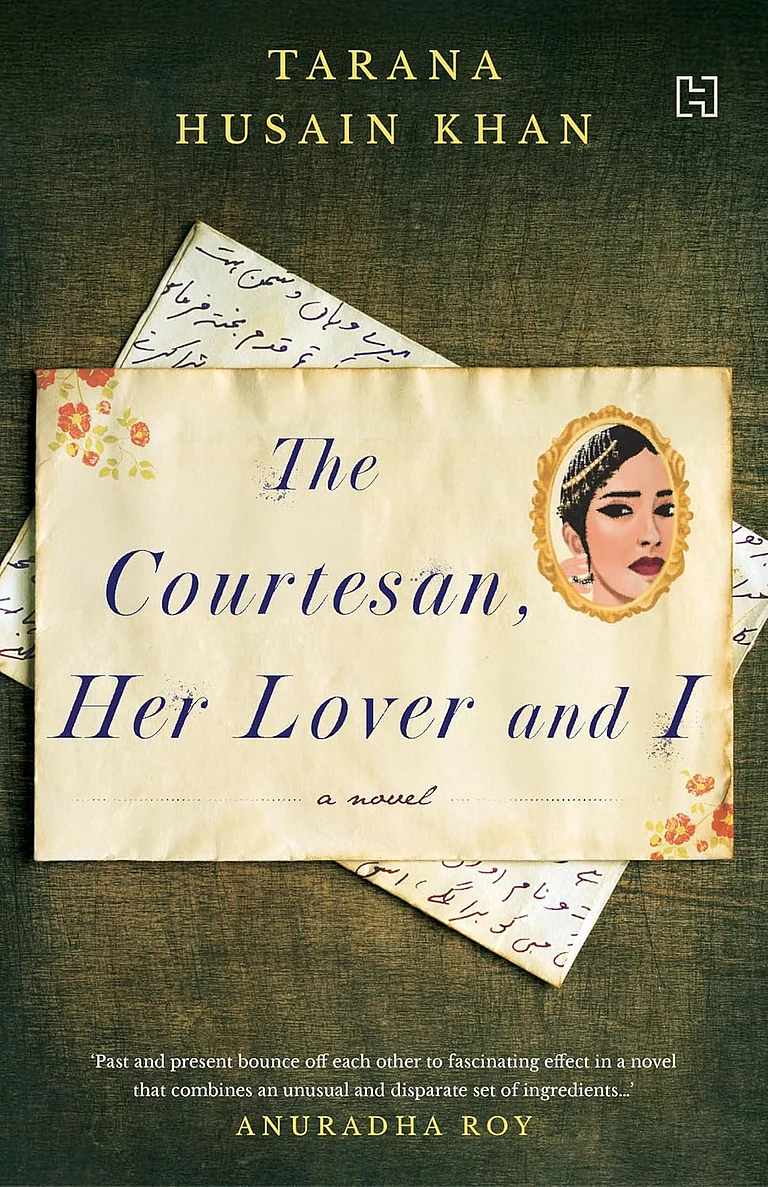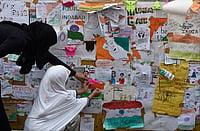Scrutinise these two sentences from the London-based author of Indian origin Chetna Maroo’s 2023 Booker-shortlisted debut novel Western Lane: “The echo, which is the ball striking the wall of the court, is louder than the shot itself. This is what I hear when I remember the year after our mother died, and our father had us practising at Western Lane two, three, four hours a day.”
These sentences offer much more than the setting, the everyday, and the coping mechanism grief-stricken people seem to develop after losing a loved one. They not only inform readers that they’re entering a bereaved household but also signal that this family, too, is bereft of the tools to negotiate with loss. Because there’s seldom a mechanism that can help you process something that you expect the least but know in your heart of hearts—that what lives shall die too.
However, there’s another thing that goes amiss during this process, the acknowledgment that those who die leave their marks—that their memories survive. And that’s all one has to latch on to, to perform grief, to let a tear trickle down their face unknowingly, to rejoice in the illusion as if the person hasn’t gone anywhere, and, most importantly, to continue with life as if nothing has happened, which means entertaining the delusion that the person might even return.

Such is the scenario that becomes achingly familiar to a reader when they pay attention to this story narrated by an eleven-year-old squash player, Gopi, in this book. But it’s the echo of loss that this narration is filled with. The youngest of three sisters—the other two being Mona (15) and Khush (13)—Gopi is the only one who trusts this “regime” of playing squash that their father has perhaps inadvertently invented to deal with the death of his wife. A mere distraction. A distance from the reality that the family is collectively faced with. Soon, Western Lane becomes this Gujarati family’s opportunity to deal with the life that lay ahead of them after the vacuum that the mother’s death had created.
There’s, however, a proposal that comes across this family via Uncle Pavan and Aunt Ranjan. They want to adopt one of the sisters. Something typical of a South Asian setting. What’s atypical though is the marvellous beauty of this novel one can appreciate from this moment onwards. Be it its closely observed universe where the undercurrent is over-established effortlessly. Or be it the proximity one feels to the family as if they can bear witness to the family’s innermost core—their personal histories, their private moments, and the bonds they share. For example, here’s what Uncle Pavan and his wife, Aunt Ranjan, try to notice in Gopi’s father: “They were sorry for him, but they were also trying to get the measure of something and we knew it had to do with the space that had opened in front of him.”
But a new opportunity had opened up for everyone, for someone had freed up space. This emptiness was obvious. A jarring appearance, an eyesore. These sisters soon “settled into new routines” and, as often is the case, the eldest rises to the occasion by trying to mother her siblings and beginning to share the disappointments and register contempt for things on behalf of her mother. This transformation from a word that was a noun earlier to these siblings becomes a verb soon. Something that they had to actively do. This is not only striking but also a logical movement. The other two siblings couldn’t help but notice this transformation: “Sometimes, we could feel the strain in her, the mental and physical burden of being something she was not.”
Additionally, there are multiple references from the history of the game. This research, however, doesn’t burden the narrative at all. In fact, it offers unique takeaways to our protagonist. And how meticulously this history is woven into the story signals the maturity of the writer. For example, Pakistani squash player Jahangir Khan, who’s regarded as one of the finest players ever, is quoted multiple times. His brother Torsam Khan, who was also a squash player, had died at the age of 27 when Jahangir was very young (15). Apparently, it’s grief which led the younger brother to continue with the sport with dogged determination as a tribute to his brother. There’s a sentence in the book: “In each game, it’s the same Jahangir, but not the same.” While it’s an observation sportsperson can relate to, it’s also something closer to real life. Jahangir wanted to quit the sport but didn’t. There’s duality in your behaviour when you’re suddenly faced with an eventuality like death, something that the sisters and the father face in this book.
While a cutesy teenage romance between Gopi and Ged blossoms in the book, one can’t ignore the feeling of placeless-ness and listlessness regarding its characters as one sits through its pages which are populated with one gem of a sentence after another. Here’s one example: “I kept my hand in Ged’s and my shame was as big as the sky.”
It almost becomes a purpose for the reader—to get to know how Gopi will traverse this journey, face the hollowness that plagues her life, make sense of emptiness, and above all, play squash like she means business and nothing else. It’s her indecisiveness as well that further motivates one, as if one were watching an interesting game reach its natural conclusion, almost as if one is hypnotised much like the narrator when she says, “Sometimes, you don’t even know you are thinking.”
This deft narrative, however, will unfold differently for each person, for grief opens up possibilities. Its takeaways are always subjective, but eventually, there’s an objective reality that’s there to be faced. As Joan Didion writes in Blue Nights—a memoir of her daughter, Quintana Roo Dunne’s death, “Time passes. Memory fades, memory adjusts, memory conforms to what we think we remember.”
And this is what one can’t help but notice in this remarkable novel. Something that the two-time winner of the National Book Award for Fiction American novelist and professor Jesmyn Ward notes in an interview with The Guardian: “Grief unmakes you—you have to create a new version of yourself and your life.”
Saurabh Sharma is a Delhi-based queer writer and freelance journalist
(This appeared in the print as 'Unmasking Grief')

























